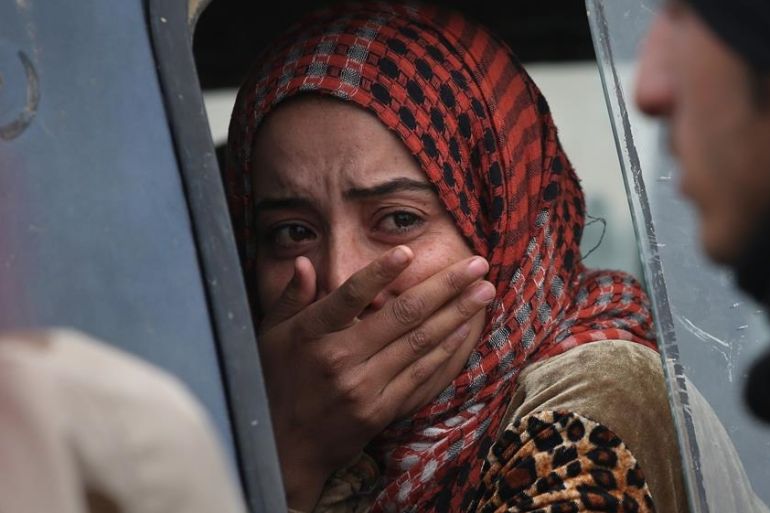Iraq war 13 years on: ‘I was lucky to stay alive’
Iraqis reflect on how the US invasion and occupation changed their lives for ever.

As Iraq marks 13 years since the US invasion and occupation, the costs of the war continue to accrue, generation after generation.
While Iraqis continue to live with the legacies of the war, this is not the Iraq that so many of its people once knew. Here, Iraqis reflect on the indelible marks this conflict has left on their lives.
!['Before, no one paid attention to who was Sunni and who was Shia, but the war changed all that' [Getty Images]](/wp-content/uploads/2016/04/216966775f40405c89367eb8314ba623_18.jpeg)
| ‘I do not know what my daughter looks like now’ |
Shaimaa, 46, could not hold back tears as she recounted how her life changed after the United States-led occupation of Iraq in 2003. She lost many loved ones and has not seen her daughter for years.
Shaimaa, who currently lives in Erbil, met her husband, Ismail, in 1998. Within a few months, they were married. “Our life was simple, but we were happy,” she recalls. “Not in my worst nightmares could I have imagined that everything would change within a few years.”
|
My husband was a good man before the war, but the militia changed him. He became a cruel husband. He took my child away, and he wouldn’t let me see her. |
Shortly after the US invasion of Iraq, Ismail, a Shia Muslim, decided to join a militia. At first, he kept it a secret, but one day he came back home wearing a uniform.
Shaimaa could do nothing to convince him to defect. “My daughter, Yasmine, was three at the time. It was hard for me to see Ismail become a fighter, but I had to accept that fact; I could not leave him,” she said.
The couple went through three turbulent years of family disputes. In 2006, events took a dramatic turn for Shaimaa when her brother, Mustafa, was abducted. Three days later, he was found dead on a deserted road in Baghdad.
“We could barely recognise him. His body was [swollen], with holes in it. It was obvious that he was tortured, then killed,” she said. Shaimaa mourned the loss of her younger brother for days on end. They were very close.
At the time, Iraq was hit by a wave of sectarian violence in which thousands of people were killed.
Barely three weeks after her brother’s death, Ismael told her that “her brother deserved no mercy”. Torturing and killing him was meant to set an example for all Iraqis who oppose the government, he said.
“I realised then that my husband had something to do with the murder of Mustafa,” Shaimaa said, noting the realisation led her to have a nervous breakdown. “I was locked [by my husband] in a room with neither food nor water for days, but the worst part was when Ismael took Yasmine, who was six at the time, to live with his mother and father.”
Shaimaa begged her husband to bring Yasmine back home. “I promised to say nothing about what he did. He threatened to take Yasmine away from me. I couldn’t leave her.” In 2008, Ismael ended the marriage and forced Shaimaa out of the house, but kept their daughter.
Shaimaa said the lives of many Iraqis changed greatly after the invasion, before which little attention was paid to who was Sunni and who was Shia, and mixed marriages among Sunni and Shia Muslims were common.
“My husband was a good man before the war, but the militia changed him,” she said. “He became a cruel husband. He took my child away, and he wouldn’t let me see her.”
It has been eight years since Shaimaa last saw her daughter. “I don’t even have a picture of her. I don’t know what she looks like now. She is 16 years old.”
At times, Shaimaa imagines talking to Yasmine: “I have missed your childhood; I was not there for you when you needed me most. I have tried to see you and I will keep trying, and if we meet again, I hope that you will forgive me.”
!['I was lucky to stay alive. Others died under torture or due to medical neglect' [Getty Images]](/wp-content/uploads/2016/04/10b0818452e548b1b670eafa2988d8f2_18.jpeg)
![The mass killing of Iraqi scholars lasted for almost a decade [Getty Images]](/wp-content/uploads/2016/04/64db50f8eb6d4e5cbdc22cfee9923764_18.jpeg)